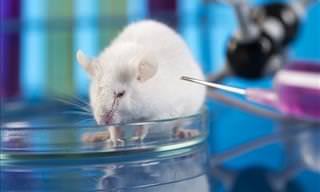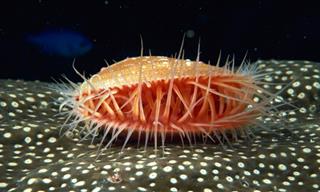Cancer, as well as the human DNA and genome, have been in constant ongoing research. Researchers keep on discovering new rare types of cancer, but at the same rate, they develop new, effective treatments, and for some cancers even vaccinations. While some cancers remain lethal, for many, a diagnosis no longer means a death sentence. In this article, will discuss what we’ve learned about cancer from the animal kingdom.
1. There are types of contagious cancer
Clams, cockles, mussels, and other marine mollusks can get a type of infectious cancer called neoplasia from the seawater they live in. The cells of the disease flow freely through the water and infect mollusks through their filter feeders. Unlike leukemia, this disease is not caused by changes in the DNA of an individual. The cancerous cells settle in the new host, divide and multiply, but how they survive is still unknown. The disease causes the circulatory fluid to thicken up, and clog up the tissue, which eventually leads to inevitable death.
That is not the only type of transmissible cancer in the animal kingdom. Apart from neoplasia, there are four more types of transmissible cancers a mollusk can get, but neoplasia is the most common one.
2. Tasmanian devils were almost extinct due to cancer. 
There are two different types of transmissible cancer affecting the Tasmanian devils' population. Both are facial tumors, passed when the Devils bite each other. Considered an aggressive species, their behavior has caused the disease to spread out fast. So much so, that it has pushed their population towards extinction over the past 20 years.
The Devil Facial Tumor Disease was first discovered in Northeastern Tasmania in 1996, and has since spread across 95% of the species range, but now scientists are discovering that the animals' immune system has modified to fight this disease by way of natural selection.
Cancer has never been passed from animals to humans. It has also never been transmissible in humans, apart for extremely rare cases- During organ transplantation, experimental treatment, and a surgical accident, as Sanger Institute states.
3. Evolution made whales immune to cancer.
Just like the Tasmanian devils are gradually evolving to be able to fight cancer, bowhead whales have also evolved to be immune to cancer.
Bowhead whales are one of the largest mammals on earth, growing to a length of up to 65 feet, and weighing over 100 tons. They have 1000 times more cells in their bodies than we do, an estimate of 3.7 quadrillion cells. Having these many cells must put them in an even larger risk of cancer than humans, about 1000 times more, right? But bowhead whales are seemingly immune to cancer. They are the perfect example of what’s called Peto's paradox: A lack of correlation between body size and cancer risk. A possible solution to this paradox, as found in a 2017 research, is evolution. The research suggests that “super-human cancer suppression has evolved” to make these whales essentially immune to cancer.
4. Elephants carry the Guardian of the Genome
Elephants, like whales, consist of many many cells and live a long life span, but like bowhead whales, they too demonstrate a remarkable immunity to cancer.
While researchers are still in the speculation stage in regards to what makes whales immune to cancer, the secret to elephants' immunity is out in the open. They have 20 copies of a tumor suppressor gene, called the Guardian of the Genome.
Humans also have that gene, but we only have just one copy, which is mutated in 50% of all cancers. Elephants have a whole army of that gene, and so they can handle cancer much more efficiently than we can.
Here’s how this gene works: it alters a cell metabolism in a way that affects the cell's identity. Meaning, if you reestablish this gene in a tumor, the tumor won’t go away but it will revert to a pre-cancerous state. Scientists are still in search of the right way to do it.
5. Naked mole rats are resistant to cancer.
Mole rats rarely get cancer. The rare times they do, they almost always survive. Blind mole rats have a protective mechanism that eliminates the whole surrounding area of cancerous cells, potentially killing cancer. The way their cells divide is also potentially cancer-immune; their cells reproduce in a different way then in most mammals.
We will try to explain in a simplified manner: most mammal tissues are made of cells that are arranged tightly together to create a strong barrier. Between each cell, is a viscous padding called hyaluronic acid.
But naked mole rats' tissues are nothing like that. Their cells do not multiply as much as ours do. They are arranged much farther apart, so that there is much more padding in between. This padding is much more viscous than ours too, making it harder for cancer cells to divide and spread within the rodents' bodies.
Still too puzzling? Let Vox explain:
6. Humans share a rare cancer with dogs and horses
Mucosal melanoma is one of the rarest forms of skin cancer, making up only 1% of diagnoses. As the name suggests, it occurs in areas of the body coated in mucosal lining such as the nose, mouth, sinuses, and genitals- areas that don’t see the sun, making it difficult to diagnose.
With as few as 700 cases diagnosed a year in the US, there still isn’t enough research about it and so the cause of mucosal melanoma remains unknown.
What researchers do know is that this type of cancer is not unique to humans. It’s seen across mammal species including dogs and horses. Studies have shown that a handful of genes that are mutated in this form of cancer repeat themselves in dogs and horses too. This information may help narrow down the targets for new drugs, as well as more research.
H/T: SangerInstitute
 Go to BabaMail
Go to BabaMail




























































